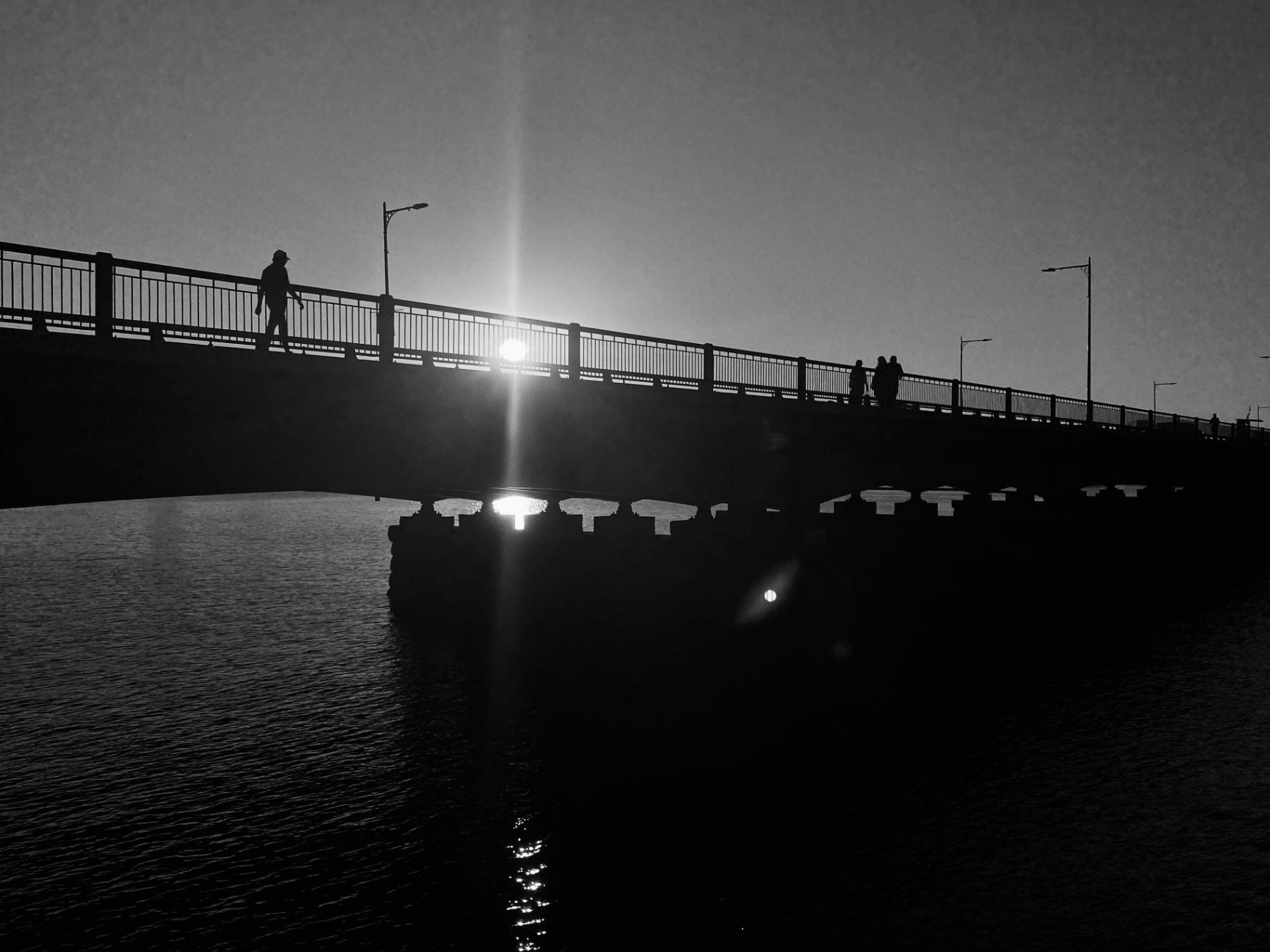Death removed from his mount, and spoke:
To remove thee I am come, and send thee from the garden forth, to till the ground whence thou wast taken, fitter soil.
And it was certain that she did not want to die. But she knew, more certainly still, that she did not want to step down the mountain. To Death, therefore, she replied:
How shall we breathe in other air less pure, accustom’d to immortal fruits?
And so she raised her hand to Death’s chosen fingers. He bid her rise, and she did, and they walked not down but up, their shimmering forms ascension. Her earthly form may yet till the ground, dust returning to dust, rib to its maker, but she knew she never would have to descend from the mountain.
A seed of Paradise flew westerly from the walls that surrounded that garden. It floated with the breeze, passing easily through valleys and springing lightly over mountain ranges. It traversed the oceans on the backs of breaching whales and flying fish and road-weary albatrosses. It breathed out exultance through the dense woods past the shore, in awe of what would spring from the ashes of its garden. It touched lightly the nape of the bison’s neck, and swooped low into the pristine openness it passed through.
Once it had traveled enough it came to rest as the first snowflake of winter does: impossibly lightly, promising midnights lit by beauty. Such is the quality of the air, dense enough to congeal at any moment and so reveal the angel who inhabits that place.
There, each tree exhales in giant breaths that soak in every atom of the world and expel each enriched. The pine is tangible, not a scent but a presence. There, bluegrass filters through screen doors and simple meals are made by families, needles coat soil softer than bedsheets and no one is alone.
The day comes at the right time there, and one wakes up when Uriel turns his eye to the cracks in one’s window-blinds. They are called flapjacks there, and they sizzle on a griddle that burns clean, its iron older than the trees and as wise as their roots. The logs that side the house exhale in unison with their great standing siblings on the morning’s first step outside. The air is crisp and the light is sharp but gentle, impossibly clear.
Work is done on the mountain: a bridge over an inconvenient ditch is a beautifully simple wooden stoicism. Soil is dug, walks are taken, boulders scrambled over. The air embraces and one’s energy is a store infinitely replenished — the sun shines on a smile and a breath is an intake of light.
The day does not wear on. There is the only place where the afternoon is not depressed: the Earth revels in the shifting light and bathes in molten gold. The sun turns Midas, his hand deftly alighting upon every grand tree and every dusty speck. And as the day turns to night, so the world knows that the sun will be reborn, that it has not died but gone on to other places. It allows for rest, for the families to softly pad inside, light a fire or procure their slippers, turn on their bluegrass and set the table. And candles light the table, and no one is alone.
To leave the mountain is to take the road east, to sidewind in soft switchbacks that S downwards to the peopled city at the mountain’s base. It seems inevitable for the peak-living to make that trek. But she lived her days with those trees at the top, her self-conceived soul climbing them, seeping into their bark and flying from their needles, breathing in the air deeply, deeply. She could not leave them for a life elsewhere, for a place with ground of the wrong shade, sky stretched out of proportion by so many fisheyed gazes. So when she knew her time in those logs atop the mountain was coming to its close, she looked at her options and found she had no options at all. She never liked slopes; they were hard on her knees. Too hard on her knees. The trek, inevitable, to cast one’s self towards the sunrise, was too hard on her knees. Who would want to journey there, to leave that place only to go lower?
I do not know the moment of death. I cannot know, cannot pretend to imagine, what happened then. My father cried, and therefore it is incomprehensible. The moment is the loss of the day: the everyday, the walk out the door, the bluegrass at night, the crispness and the exhale in the morning into this day into the next, which are all the same. Tomorrow, and tomorrow, are the same. It is routine, it is the inevitable trek, it is constant, the march downwards from the heavenly mount, the crawl into the Stygian pool, the trudging slowly into the earth until it is burying, suffocating, taking and taking and taking and taking and taking and taking and killing and The sun blurs into moon into sun into sun into days and days, days and days stretching forever into forever into the maw of the great convalescence of convalescence of air that congeals and says to remove thee I am come.
Dustin Copeland ’25 is a staff writer
dcopeland25@amherst.edu
